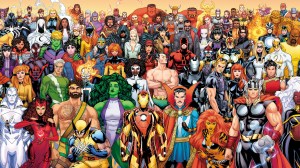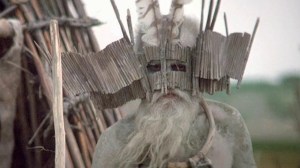After almost a decade writing Amazing Spider-Man, Dan Slott has announced he will be leaving the title in June. This change is by far the biggest comics of 2018 thus far and will result in big changes both for Spider-Man and Iron Man, the next character Slott plans to write. It’s difficult to encapsulate just how titanic this shift is for Marvel Comics without taking a few minutes to consider the relationship between Slott and Spider-Man. They have been together for so long that many modern fans can’t remember a time when anyone else guided the adventures of everyone’s favorite webslinger. Slott leaves behind an enormous legacy, one worth breaking down and carefully considering.
Videos by ComicBook.com
More Than a Decade of Spider-Man
A very conservative count reveals that Dan Slott will have written 164 issues of the core Spider-Man title when his run ends with Amazing Spider-Man #801. This does not include many one-shots, Free Comic Book Day editions, and mini-series. If every appearance of Spider-Man crafted by Slott were to be counted, the number would be well over 200.
Slott’s first notable work with the character was in the pages of Spider-Man and the Human Torch in 2005. It was this buddy comedy, alongside a well-loved run on She-Hulk, that likely earned him a spot in the rotation of writers for the “Brand New Day” era. Beginning in 2008, writing duties on the weekly publication schedule for Amazing Spider-Man were passed like a baton. As that time drew to a close, Slott was selected to be the only writer of the series in 2010, starting with Amazing Spider-Man #648 and the start of “Big Time.”
Ever since that point, Slott has been the leading creator in the Spider-Man line of comics. He has guided his own title and a multitude of others through events like “Spider-Island”, “Spider-Verse”, and “The Clone Conspiracy.” Slott even helped cancel Amazing Spider-Man for slightly more than a year in order to replace it with The Superior Spider-Man. Both the amount of time and number of stories contained within his bibliography is daunting, and it has left a mark on the Spider-Man mythos.

Updating the Old
There’s no connection between being a big fan and a great writer. Too much adoration or reverence for what has come before is a massive hindrance in telling new stories. While there’s no doubt that Slott is a big fan of Spider-Man, that never slowed him down when addressing classic villains or Peter Parker himself.
The absolute best example of this lies in The Superior Spider-Man, in which Doctor Octopus was radically expanded and updated. His goals, motives, and personality were expanded upon both in death and in his new life, resulting in his current status quo as an outsider anti-hero. Similar changes affected villains like Electro, who has been replaced, and The Rhino, who was given a tragic backstory. Peter Parker has been the face of change as he died and became a multi-billionaire throughout the run. These facets have been removed, but their effects remain and weigh heavily on Parker’s shoulders.
Slott has not only reinvented and redefined many of the key characters within Spider-Man’s world, but he has also made it clear that future writers should do the same. The reconstruction of key foes have all ultimately been met with success, and their alterations remain canon years after the fact. This run is a constant reminder that even old comic books can learn new tricks.
Embracing the New
Classic runs are more readily defined by what they add than what they change, and Slott’s time on Amazing Spider-Man has added a lot. The Spider-Verse is the most obvious example. Not only did it provide a much needed redefinition of Morlun, but ongoing opportunities for every character with “Spider” in their name to travel the multiverse having adventures. Without this event there, would be no Spider-Gwen or dozens of other characters able to check in on the core Marvel universe whenever they want.
Slott also emphasized the addition of his own original characters as well. Spidey’s supporting cast has ballooned in the past decade, incorporating the likes of hidden superhero tech mogul Max Modell and the brilliant scientist Anna Maria Marconi. You also can’t forget Carlie Cooper, Uatu (the person, not The Watcher), Yuriko Watanabe, or dozens of others. That doesn’t even take into account the many new villains. Anti-Venom, Augustus Roman, and Mister Negative are three of the most lasting additions to Spider-Man’s rogues gallery. Meanwhile, underrated C-listers like Paper Doll and Screwball are simply awaiting the next writer to bring them back and explore their potential.
It’s nearly impossible to list everything Slott has added to Amazing Spider-Man and, in turn, Marvel Comics. Characters, settings, and events have all added up to make Spidey’s world a radically different one than it was 10 years ago. That world will now be inherited by a brand new generation of Spider-writers.

With Great Writers Come Great Stories
For all of the many comics written, changes made, and characters added, the greatest legacy of the Slott run is obvious: a clear-eyed understanding of why Spider-Man matters. Early in his run, Slott wrote the story “No One Dies” in Amazing Spider-Man #655 and #656. Those three words not only summarized the story, but the guiding ethos of Spider-Man throughout the run. It was bold, idealistic, and people-oriented, just like the hero himself.
Slott’s Spider-Man has always remained focus on helping every person he can, stretching himself across the multiverse and a multi-billion dollar corporation to do so. He is the little guy who has risen to incredible heights, both as Spider-Man and Peter Parker, because of his unwavering focus on doing the right thing. While prior runs like those of Stan Lee and Roger Stern emphasized how Spider-Man grew into great responsibility, Slott showed us how that growth resulted in great accomplishments.
An entire generation of fans have grown up reading those stories. They have learned the power of idealism and the lessons of great responsibility from Spider-Man under Slott’s constantly clattering keyboard. Some of them will become the new writers and artists of Spider-Man. All of them will take those lessons into the world.
That is a mighty powerful legacy.








